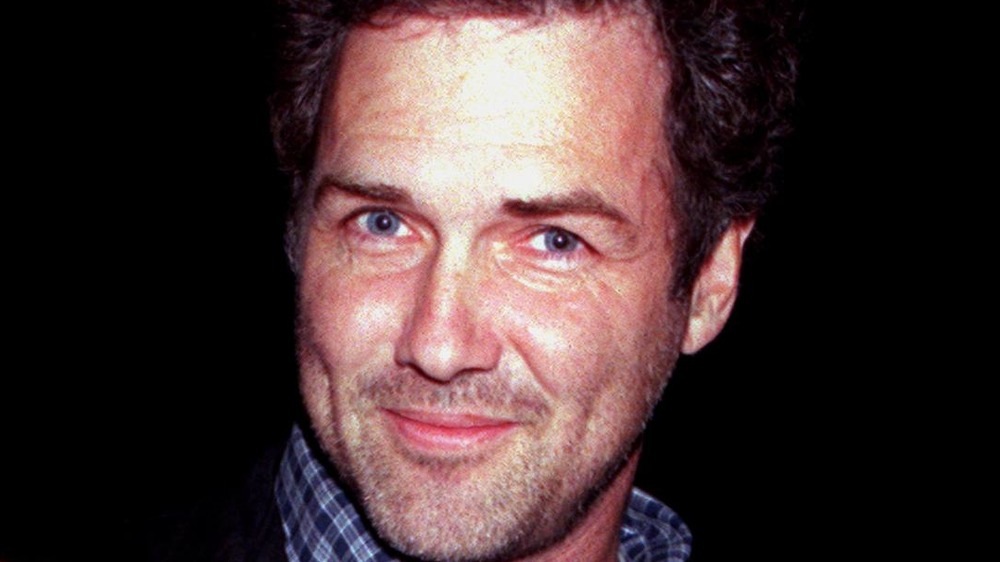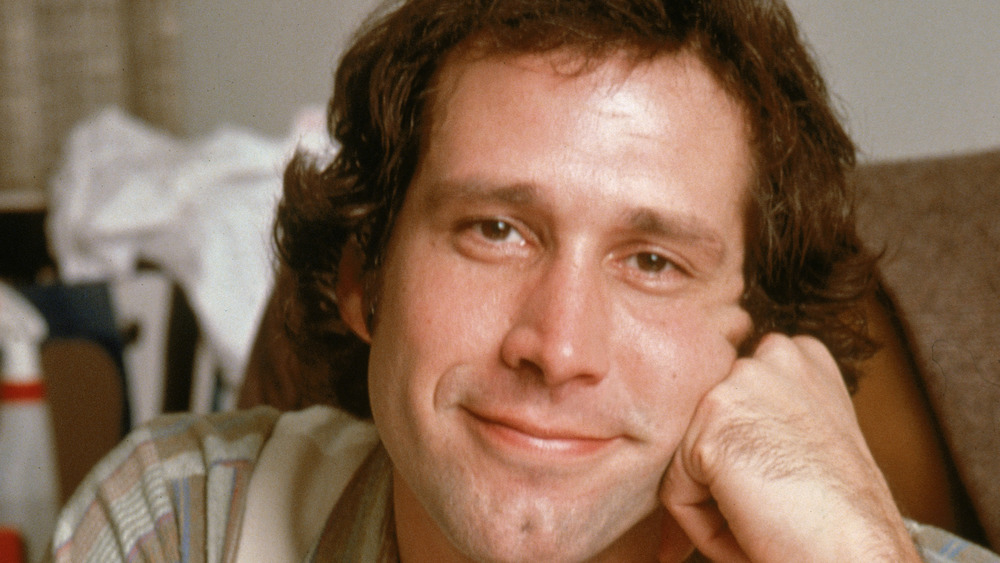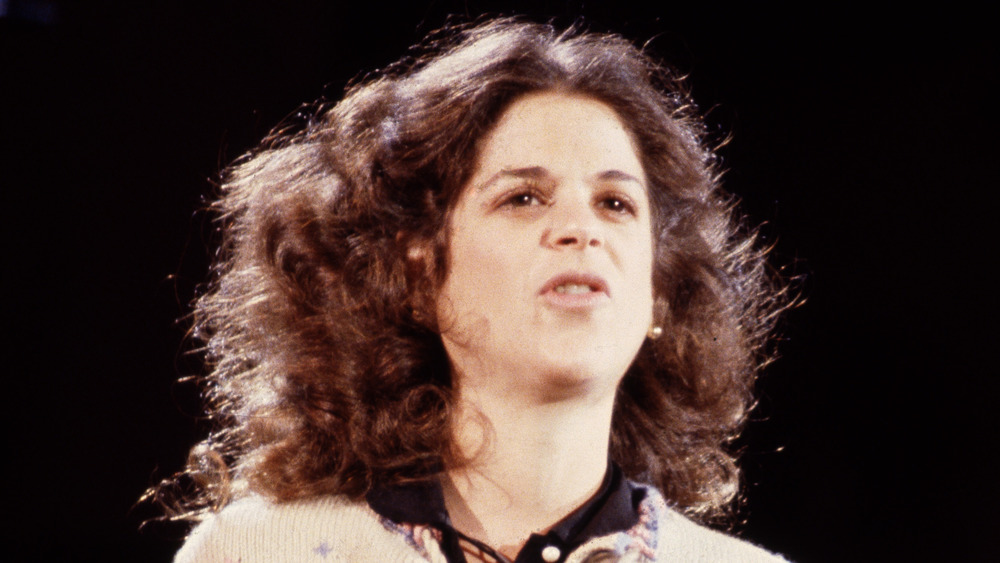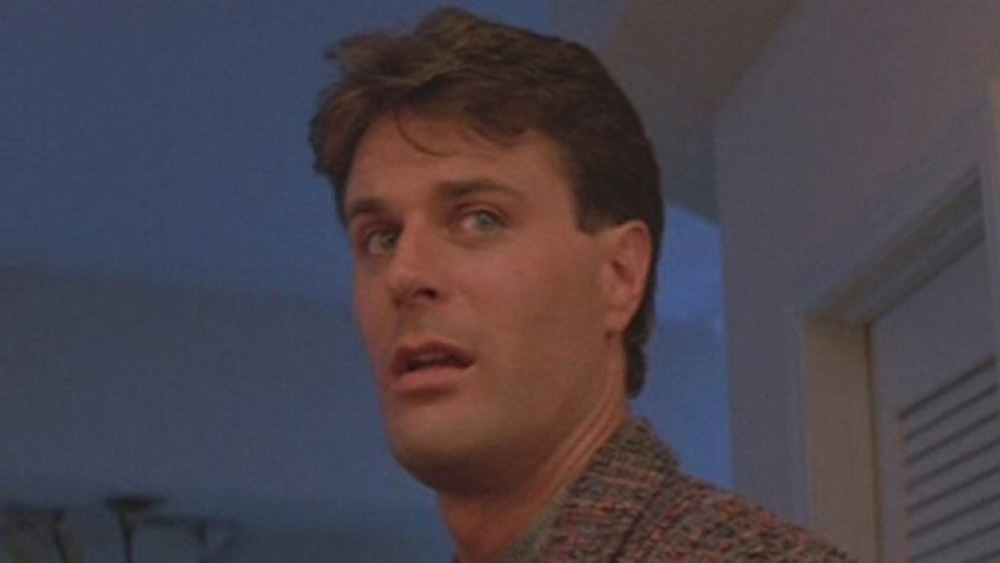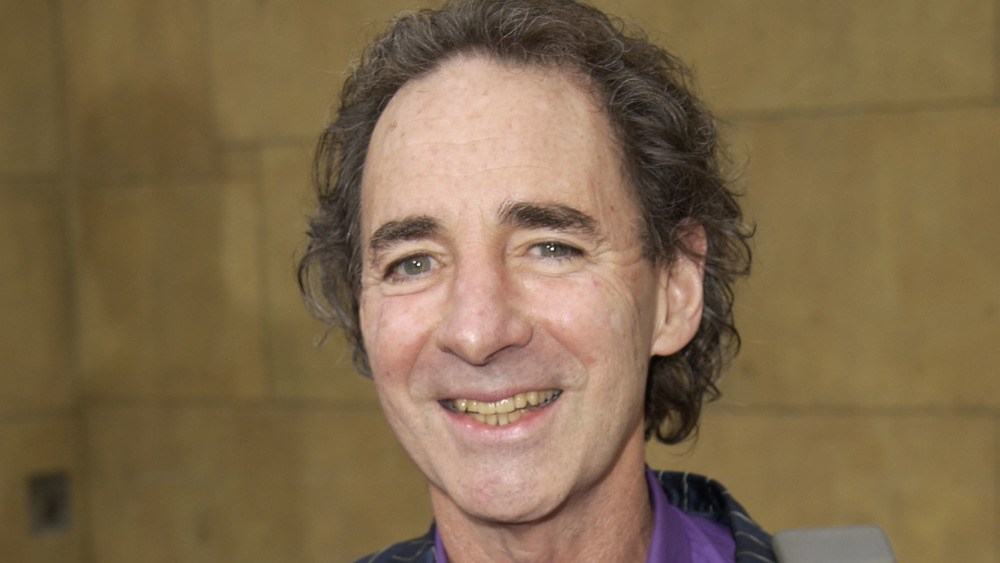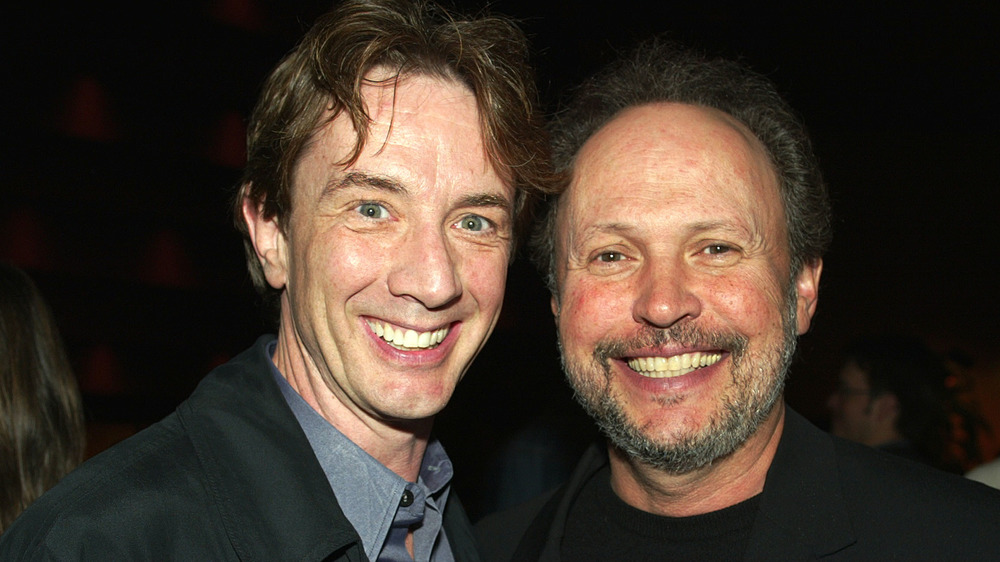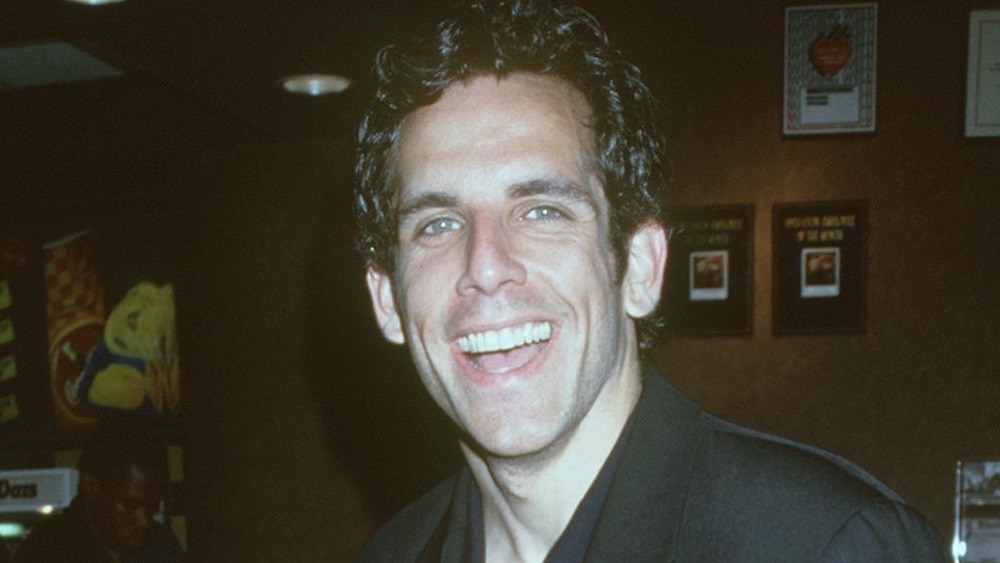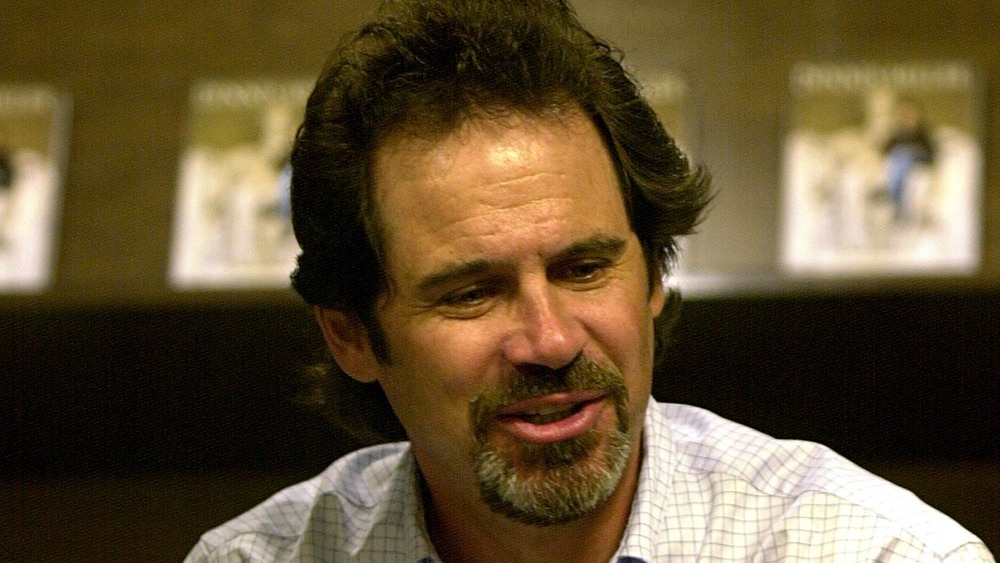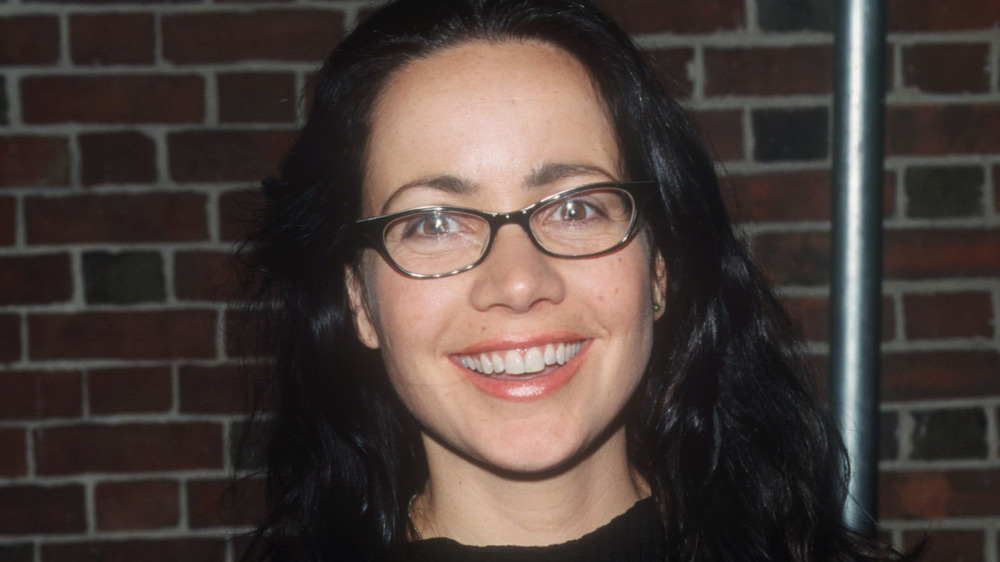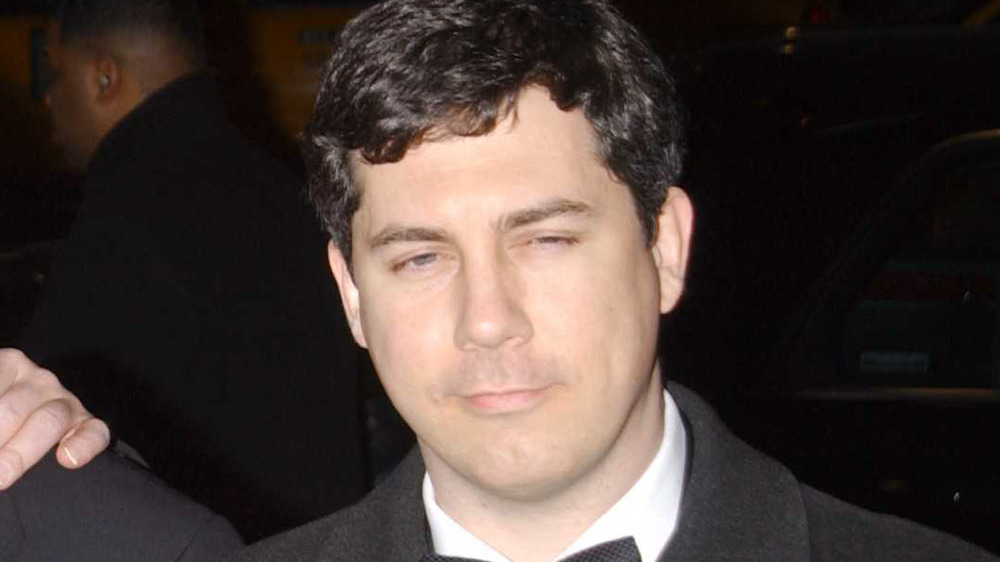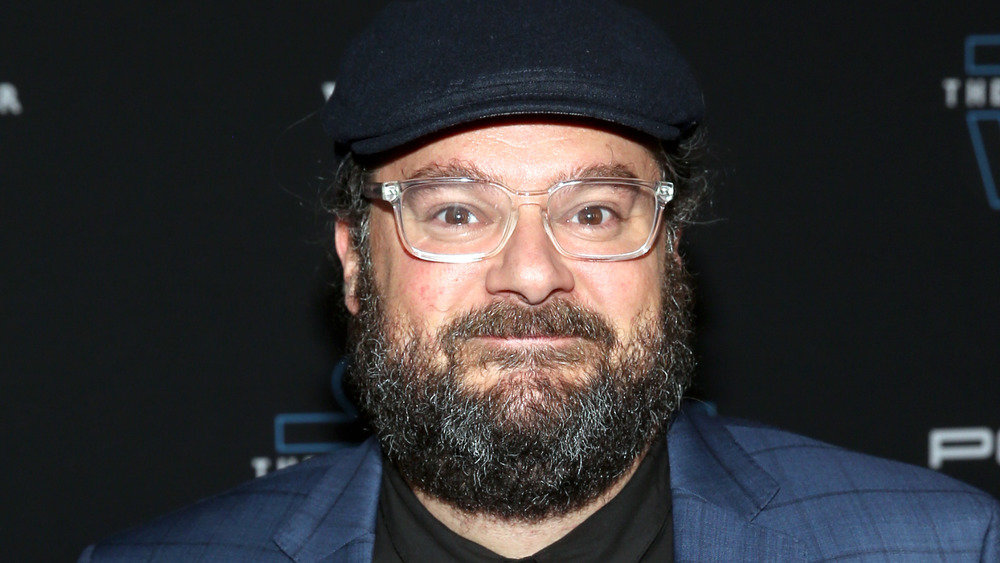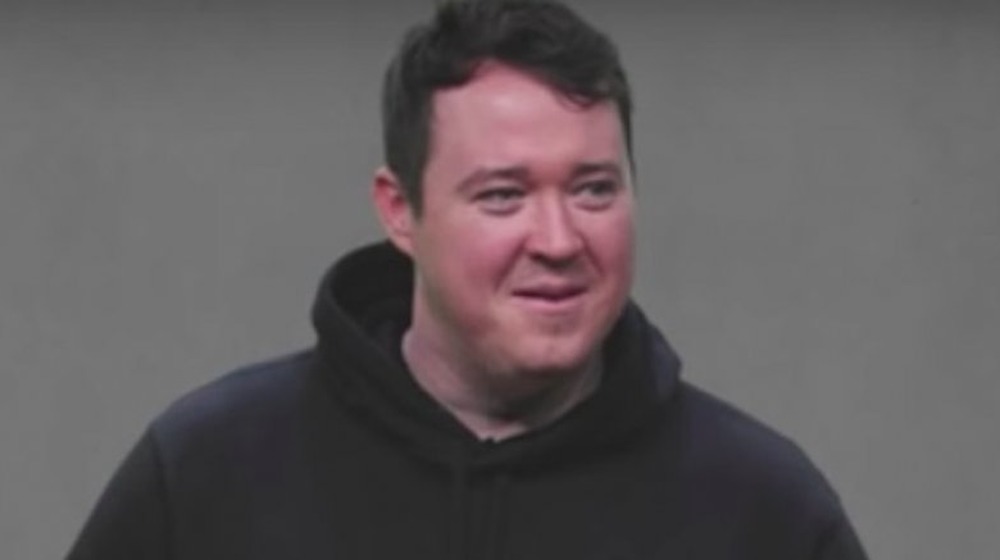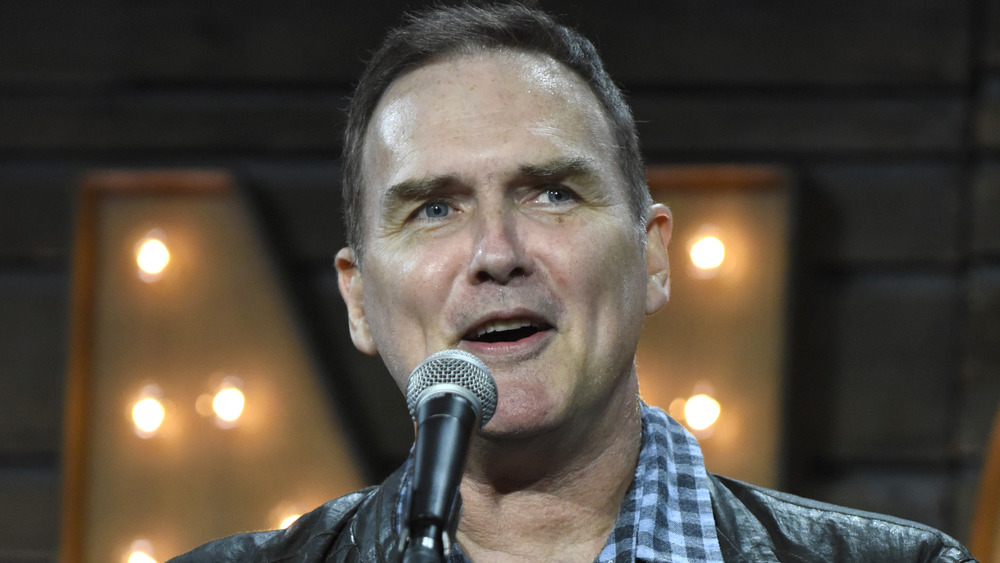Why These Saturday Night Live Cast Members Left
Saturday Night Live is a television institution, airing late on Saturdays since 1975 on NBC and offering sketches, satire, and hot musical acts. It's also had an indelible and influential effect on comedy, acting as a clearinghouse for humor and serving as a place where future superstars perfect their comedic crafts before setting off to headline their own TV shows or become major movie stars. Among the dozens of comic icons who got a taste of fame on SNL, there's Eddie Murphy, Bill Murray, Julia Louis-Dreyfus, Will Ferrell, Adam Sandler, Chris Farley, Kate McKinnon, Kristen Wiig, and Jimmy Fallon.
Needless to say, SNL is one of the most high-profile TV shows, and landing a slot in its relatively small cast is a goal for hundreds of thousands of actors. However, even if you earn your spot on the SNL roster, all good things must come to an end. Occasionally, the show's producers clean house and fire some cast members to make room for new blood and new voices in order to stay relevant. And every so often, long-term stars will bolt to pursue new opportunities. There are many reasons why an actor would leave the vaunted heights of Saturday Night Live, and here are the stories behind some of the most interesting exits in the show's history.
Chevy Chase left Saturday Night Live for love
When Saturday Night Live hit NBC in 1975, it was called NBC's Saturday Night (due to ABC already having a Howard Cosell-hosted variety show called Saturday Night Live on the air at the time), and its sketch players were so obscure that they weren't even billed by name in the show's opening sequence but rather as the "Not Ready for Prime Time Players."
Chevy Chase became the show's first breakout star in its first season, perhaps because he got solo screen time each week as the host of the faux-news "Weekend Update" segment, which began with the comedian dropping the catchphrase, "I'm Chevy Chase and you're not." Chase was the first person to get famous from SNL, and he was also the person to leave SNL to exploit that fame, departing from the show after just a few episodes into his (and the show's) second season. He quickly starred in a succession of films — Foul Play, Oh Heavenly Dog, Caddyshack, and Seems Like Old Times — but Chase insists that he didn't really leave SNL as soon as possible to strike it big in Hollywood.
"I left for a girl that I was in love with. It had nothing to do with lucrative film deals awaiting me," Chase told NBC's Today in 2007, adding, "I was very much in love with a girl who just would not leave California." Since SNL famously airs from New York City, Chase had to follow his heart.
When creator Lorne Michaels left in 1980, the cast did, too
After five seasons of producing an edgy, comedically crisp, 90-minute sketch comedy show every week for five years, Saturday Night Live creator and producer Lorne Michaels needed a break. According to Live from New York: The Complete, Uncensored History of Saturday Night Live, he wanted just a few months off, and he figured a summer and a few months into the fall would do it. A meeting to discuss Michaels' sabbatical and its length was scheduled with NBC president Fred Silverman in May 1980, but it was rescheduled. And during the interim, well, things got intense.
See, SNL aired an episode in which Al Franken — writer, featured performer, and Michaels' choice of successor — did a "Weekend Update" called "A Limo for a Lame-o" that personally mocked Silverman, protesting the executive's use of a limousine despite NBC's abysmal ratings. That deeply upset Silverman and led to such strained relations with SNL that Michaels decided to make his SNL temporary exit permanent. The May 24, 1980 episode would truly mark the end of an era, as the four original SNL cast members who hadn't yet left the show — Gilda Radner, Jane Curtin, Laraine Newman, and Garrett Morris (as well as second-year hire Bill Murray) — followed their boss out the door.
A new producer in 1981 started fresh and flopped hard
To replace outgoing hands-on producer Lorne Michaels for the 1980-1981 Saturday Night Live season, NBC promoted the show's associate producer, Jean Doumanian, who faced the unenviable task of bringing in a new cast to the comedy show. While she passed on Jim Carrey and John Goodman, she hired up Denny Dillon, Gilbert Gottfried, and Ann Risley. To be fair, Doumanian also brought in Eddie Murphy and Charles Rocket, a solid performer on the show who's most remembered for saying the F-word on the air.
That February 21, 1981 episode was hosted by Dallas star Charlene Tilton, so the show parodied that series' "Who Shot J.R." cliffhanger, by having an assailant shoot Rocket. At the end-of-show goodbyes, Rocket sat in a wheelchair, and Tilton asked how it felt to be shot. He replied, "Aw, man. It's the first time I've ever been shot in my life. I'd like to know who the f*** did it." Needless to say, this did not go over well with studio executives.
Rocket and Doumanian, among others, would work on just one more episode. After the 12th episode of the season, Doumanian was relieved of her duties and replaced by network executive Dick Ebersol. He immediately fired most of the cast, including Rocket, Gottfried, Risley, and featured players Yvonne Hudson, Matthew Laurance, and Patrick Weathers. At the end of the season — which would come early and just a week later, due to a Screen Actors Guild strike — Ebersol dismissed almost all of the rest of Doumanian's hires, retaining just Murphy and Joe Piscopo.
Harry Shearer didn't get along with others
Some of the best moments of modern comedy have come from Harry Shearer. For example, he co-wrote and co-starred in the 1984 cult classic This is Spinal Tap, and he's voiced the likes of Ned Flanders and Mr. Burns on The Simpsons. He was also a cast member on another comedy stalwart, Saturday Night Live, on two separate occasions — neither which lasted very long.
Shearer joined the show in 1979, but he left in 1980 along with producer Lorne Michaels and the rest of the cast. After the success of This is Spinal Tap, he returned to the show in 1984, more famous and with more clout, but he still struggled for screen time. "I had been writing this series of [Ronald] Reagan sketches called 'Hellcats in the White House,' none of which got on the air," he recalled in Live from New York. A January 1980 episode was supposed to include one, and Shearer donned extensive Reagan makeup for the show's dress rehearsal. In fact, he stayed in makeup for eight hours, only to be told a few minutes before the end of the episode's broadcast that the sketch was cut.
"So for three straight weeks, I wasn't on the air, and I just at that point decided I had better things to do with my time." Producer Dick Ebersol announced Shearer's departure in a press release, citing "creative differences" as the cause. When a reporter called Shearer to comment, he quipped, "Yeah, I was creative, and they were different."
Christopher Guest and Martin Short weren't supposed to be on the show for very long
Throughout most of its nearly 50 year history, Saturday Night Live has loaded its cast with relatively unknown performers, sourced from metropolitan comedy scenes and improv troupes like the Groundlings and Upright Citizens Brigade, launching the handpicked comedians to fame. However, in 1984, a few years into his tenure replacing Lorne Michaels as the head producer of SNL, Dick Ebersol decided to take a different approach and stock the show with well-known and well-honed comedians and actors.
After comic metal band Spinal Tap appeared on SNL as a musical guest in early 1984, Ebersol invited all three members to join the cast. Christopher Guest, who'd worked in TV and film since the early '70s, accepted, as did Harry Shearer, who'd co-starred on the The Jack Benny Program in the 1950s and briefly appeared on SNL in 1979. Only Michael McKean, best known at that point for his role as Lenny on the smash hit sitcom Laverne and Shirley, said no. Ebersol also hired one more ringer – Martin Short, coming of another late-night sketch comedy show, SCTV. At the end of the 1984-85 season, Guest, Shearer, and Short all departed. Why? "I had a one-year contract," Short said in Live from New York.
Ben Stiller wanted to make short films instead of sketches
In 1987, Ben Stiller, son of married comedy team Jerry Stiller and Anne Meara, made his filmmaking debut with "The Hustler of Money," a short film parody of the Tom Cruise movie The Color of Money. Stiller wrote, produced, directed, and starred in the film, and Saturday Night Live cast member Jon Lovitz enjoyed it so much he showed it to his boss, producer Lorne Michaels, who programmed it onto an episode of the late-night comedy series.
Two years later, in the middle of the 1988-89 season, Michaels hired Stiller as a featured player in the SNL cast. However, Stiller quit after just five weeks because he didn't get to do what he wanted, which was make more things like "The Hustler of Money" and not merely act in live-comedy sketches. "At that point, I just wanted to make short films," Stiller told The Howard Stern Show in 2018. "And I knew that I wasn't good live because I would get nervous." And so, Stiller left SNL abruptly and went on to be a big-screen actor, as well as feature film director. But he's been back to the show that gave him his big break. As of 2020, he's appeared as a guest on SNL 12 times — more than double the number of episodes on which he was a credited cast member.
Dennis Miller left for a late-night talk show
Acerbic, intelligent, and aloof, long-haired comedian Dennis Miller brought an infectious sarcasm to his duties on the "Weekend Update," taking over the important SNL fake news desk in 1985. He kept up his insightful, pre-Daily Show withering putdowns of newsmakers until he declared that he was "outta here" in 1991.
Miller left SNL, but as he rarely acted in sketches on the show, he didn't pursue a career starring in comedy movies but rather an avenue more suited to his skills as a comic and talking head. He hosted the syndicated late-night program The Dennis Miller Show. It premiered on hundreds of local stations around the U.S. in early 1992, anticipating the "late-night wars" that would develop later that year due to the retirement of The Tonight Show host Johnny Carson and the installation of Jay Leno as his replacement. Miller's show got lost in the shuffle, however, and was cancelled after just seven months on the air.
Janeane Garofalo had a terrible experience on Saturday Night Live
Janeane Garofalo was one of the biggest and most era-defining comics of the early 1990s. Embodying the cynical, slacker vibe that punctuated so much pop culture of the era, Garofalo helped popularize the "alternative comedy" movement, which was more personal, conversational, and free-form than the traditional setup-punchline format of traditional stand-up. She also did a lot of comic acting, such as in Fox's little-watched but Emmy-winning sketch comedy series The Ben Stiller Show and the 1994 Generation X touchstone Reality Bites. Later that year, Garofalo wound up in the comedy big time, with a spot in the cast of Saturday Night Live.
Unfortunately for the comedian, the 1994-95 season would turn out to be one of the most chaotic and critically derided periods in SNL history. As exposed by a notorious behind-the-scenes profile in New York magazine about "the decline and fall" of the show, a too-large cast of 17 people, all competing for airtime, led to a hostile backstage environment. That all got under Garofalo's skin, and she likened working on the show to "fraternity hazing." She reportedly told friends that SNL, where she'd played mostly small and minor roles, had been "the most miserable experience" of her life. Garofalo left SNL midway through her one and only season.
Chris Parnell was fired twice
Now one of the hardest-working voice actors on television, with regular roles as Cyril on Archer and Jerry on Rick and Morty, comic actor Chris Parnell first came to the general public's attention when he joined the cast of Saturday Night Live in 1998. He served as one of the show's all-time great utility players, playing a lot of dads and dorks while also turning out memorable impersonations (including Tom Brokaw) and showing off his rap skills, like in the hit "Lazy Sunday" digital short.
Parnell's tenure on SNL lasted eight years, but that's not a consecutive eight years. In 2001, producer Lorne Michaels fired Parnell, which the actor told Vulture "really came out of left field and was pretty devastating." But midway through the next season, in 2002, Parnell just as suddenly re-joined the late-night comedy show because cast members and writers advocated for him, particularly, he believes, Will Ferrell and Chris Kattan. "Lorne, to his credit, at the Television Critics Association panel we did the next year, it came up, and Lorne admitted that he made a mistake, which was really cool of him." Parnell left SNL for good in 2006, but that time it was because of a financial consideration. "I knew they had to cut $10 million out of the budget. I was a little burnt out, so it was all right."
Bobby Moynihan departed for an ill-fated sitcom
During his time on Saturday Night Live, Bobby Moynihan specialized in playing loudmouths, louts, and generally obnoxious individuals. Some of his most notable characters included "Weekend Update" guest Drunk Uncle, "Secondhand News" correspondent Anthony Crispino, and Michael Che's high school friend Giblet, as well as caricature of TV chef Guy Fieri and Jersey Shore's Snooki.
In 2017, after nine years and 193 episodes, Moynihan departed the series, carried triumphantly off the set by Alec Baldwin and Tom Hanks. According to Deadline, he already had his next show lined up. After having his pick of projects from which to choose, he settled on a CBS sitcom called Me, Myself & I, about a man at different stages of his life, played by different actors. Moynihan's new gig didn't last nearly as long as his previous one. After just six low-rated episodes, watched by fewer people almost every week, CBS took Me, Myself & I off of its schedule in November 2017. It didn't make it past its first season.
Shane Gillis was fired from Saturday Night Live before taping a single episode
Comedian Shane Gillis holds a Saturday Night Live record that's not likely — or even possible — to be broken. He can claim the shortest tenure ever of an official cast member with ... zero episodes.
Just before production on season 45 began in September 2019, the show announced that it had hired three new featured players – Bowen Yang, Chloe Fineman, and Shane Gillis, a Pennsylvania-based stand-up comic and co-host of Matt and Shane's Secret Podcast. Almost immediately, some of Gillis' more controversial work surfaced, including a podcast clip of Gillis and cohort Matt McCusker engaging in a racially charged conversation that included incendiary anti-Chinese epithets and using a stereotypical and offensive East Asian accents.
In another clip, Gillis and McCusker used anti-gay epithets to criticize confessional comedians, and in one other, they ranked the funniest of contemporary comedians by gender, race, and sexual orientation. Within the week, SNL had changed its mind about the new hire. "After talking with Shane Gillis, we have decided that he will not be joining SNL," a show rep told CNN, adding, "We hired Shane on the strength of his talent as a comedian and his impression audition for SNL. We were not aware of his prior remarks that have surfaced over the past few days."
Norm Macdonald made too many O.J. Simpson jokes
Each "Weekend Update" anchor brings their own flavor to the job, and in 1993, Norm Macdonald adapted the SNL segment to his voice — self-aware, sarcastic, ironic, absurd, and bluntly insulting. This was the mid-1990s, and so a frequent target of Macdonald's cutting jokes was former football great O.J. Simpson, at the time on trial for the murder of his ex-wife and her friend. "We did like three solid years of like 60 shows of O.J. jokes in a row," SNL writer Jim Downey said in a series retrospective. (For example, "According to retailers, the most popular Halloween mask this year is O.J. Simpson. And the most popular Halloween greeting is, 'I'll kill you and that guy who's bringing over your glasses or treat.")
All those Simpson jokes reportedly upset a powerful enemy — NBC executive Don Ohlmeyer, a close friend of the NFL star turned murder suspect. "This was an uncomfortable situation for me," Ohlmeyer said in an SNL special. Despite SNL producer Lorne Michaels protests about making cast changes in the middle of a season, Macdonald was dismissed from the series right around Christmas 1997.
